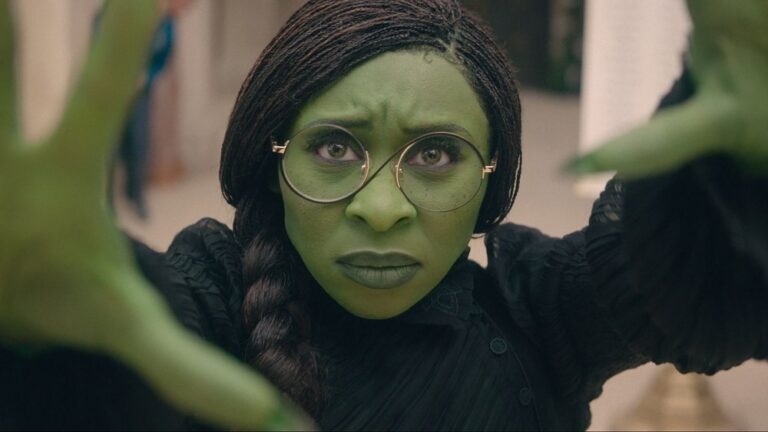OFCS members ponder the question:
“What’s the primary rule you follow as a film critic?”
Christopher Null, FilmCritic.com:
Be honest.
Nathan Shumate, Cold Fusion Video:
My primary rule is this: My allegiance is to the audience. This means I am not primarily part of the publicity arm for the filmmaker or distributor (as I’ve had to explain to filmmakers who were shocked to find out that, yes, I will give a thunderingly bad review to something I received as a screener). I call ’em like I see ’em, and if that means that I get dropped from some distributors’ go-to lists, so be it.
My secondary rule is this: Criticism is an entertainment art of its own. I often review obscure movies which my readership isn’t going to seek out, especially if I give it a mediocre grade, but I hope that readers can get just as much enjoyment out of a review of a poor movie as out of a review for a terrific movie. (In fact, I’ve had readers ask me to review more movies that I hate — apparently the reviews I write for them are more fun to read.)
Mike McGranaghan, Aisle Seat:
My primary rule is to give every movie a fair chance. While it’s impossible to enter a theater without expectations (positive or negative), the truth is that you never really know until you experience the film for itself. Sometimes a movie I think I will hate ends up pleasantly surprising me simply because I approached it with an open mind once I sat down in my seat (hello, Kit Kitteredge: An American Girl!). This is not always the case, of course, but I think it’s important to give every movie the chance to prove itself, no matter what my preconceived notions may be beforehand.
A.J. Hakari, Passport Cinema:
Rule number one that I follow as a critic is to review films on two scales: as a critic and as a fan. Not every film can have the same standards applied to them; I can’t survey Jackass: The Movie the same way I would Schindler’s List. Some movies are meant to be taken at face value, and some require a little critical thinking to appreciate. The trick is knowing when to exercise each, when to judge a film with an artistic perspective and when to just have a blast, to do what feels natural. All films are not created equal, though none are no less worth discussing or analyzing in some form or another.
Marilyn Ferdinand, Ferdy on Films, etc.:
I truly believe that cinema can change lives, therefore, my basic rule is never to tell myself or others, “it’s only a movie.” If a film sets out to deal with the Holocaust, for example, then I want the film to be honest about what the Holocaust really was, not just use it as an event that can be molded so that some generic story of the filmmaker’s choosing, or emotion the filmmaker wants to force on an audience, can be evoked. No matter how entertained I am by a film, if it is dishonest or takes cheap shots, I will call it out.
Ed Howard, Only The Cinema:
Be eclectic, and avoid the trap of “the now”” — watch and write about films that excite the imagination rather than simply the films that happen to be available or current at any given moment. Just because print journalists are tied to studio release schedules, there is no reason that online criticism should follow the same model.
James Plath, DVDtown.com:
John Updike’s first rule of book reviewing was to try to understand what the author wished to do, and not blame him for failing to achieve what he did not attempt. I have the same attitude about films. I try to understand what a director was trying to accomplish, and then judge the film accordingly.
Rob Gonsalves, eFilmCritic.com:
My rule: Respond honestly and uniquely to what you see and hear. You’re not just writing about a movie; you’re writing about yourself watching a movie (not, of course, to the solipsistic extent of making it all about you — it’s a tricky balance), and how it makes you feel and think, and how it sparks connections that only you could make. There’s the movie, and there’s you, and what comes out of the fusion of the two is Brundlefly, uh, I mean your review.
And forget about being “objective.” There is no such thing as “objectivity” in criticism.
Susan Granger, SSG Syndicate:
For me, the primary question is: Does the film accomplish what it set out to do? If it’s a drama, is there an emotional catharsis? If it’s a comedy, is there laughter? If it’s a mystery, is there real intrigue? If it’s a horror picture, does it engender true terror? Above all, is it engrossing and entertaining? Plus, I adhere to Thomas Edison’s dictum: “The greatest mission of the motion picture is to make people happy…to bring more joy, cheer and wholesome good will into this world of ours.”
Anton Bitel, Channel 4 Film:
It sounds obvious, but watch that film carefully, and take notes too. Ultimately our opinions are always our own, but if we get the (easily verifiable) details of a film’s plotting wrong, readers have every reason to question the basis of our more evaluative judgements — and we are not all born with perfect recall. Often the full resonance of an apparently casual line or throwaway image can become apparent only upon reflection. Short of seeing the film a second time (a luxury that in practice is only rarely available), nothing casts light on a film’s subtle obscurities more than the recourse of reasonably detailed notes.
MaryAnn Johanson, FlickFilosopher.com:
I always think, when I sit down to write a review, “How did this movie make me feel?” And that’s what I try to convey when I write.
Jonathan Richards, FilmFreak.be:
Write well.
Nell Minow, Movie Mom at Beliefnet:
The primary duty of a film critic is to provide lively, clear, and insightful assessments of each movie within the context of its own aspirations. We try to give readers some sense of what their reaction will be and, if we can, some better understanding of the movie’s strengths, weaknesses, and meaning reflecting our broader understanding of film history and language.
Kevin A. Ranson, MovieCrypt.com:
Try to put everything else aside and judge the film on its own merits. Whether it was overpriced, underfunded, a troubled production, placed on the shelf for years, based on the bestselling novel, rumored to be plagiarized, or inspired by real events, whatever makes it into the cut I see is what I intend to critique.
Pablo Villaça, Cinema em Cena:
To respect my readers and give them enough support for my view of the film in order to allow them not only to understand my op
inion but also to learn something about film language, if possible. The goal for me is not to influence my readers’ opinions, but to help them forming their own critical conscience.
John A. Nesbit, Old School Reviews:
Borrowing from something I read from Ebert many years ago, the primary rule I strive for when reviewing a film is to determine “how well the film works.” For a film to have value and not be a waste of time, it should have merit in at least one of three ways: educational, entertainment, artistically. The really great films work in all these areas while the worst ones fail in all three. Most fall in between, so I attempt to cue readers about what aspects work to give them a chance to decide whether it’s worth checking out.
Enrique Buchichio, Cartelera.com.uy:
To be honest. To tell the truth and nothing but the truth when writing about my experience in seeing the movie. And that would be second most important rule: to write about the experience, the feelings and emotions involved during and after the movie. I think this is more valuable for readers, and for me, than technical or enciclopedic data.
Margot Harrison, Seven Days:
Treat stars like working actors, and every working actor like a potential star. Yes, it’s tempting to talk about a star’s public profile, and sometimes you have to (Mickey Rourke in The Wrestler, anyone?) But the industry and audiences already place too much emphasis on name recognition. So if Michael Stuhlbarg gives a great performance in A Serious Man, I want to recognize that, even if every time I write his name I have to look up the spelling. Watching movies as new chapters in stars’ ongoing soap operas is fun (“Wow, Angelina is tinier than ever!”), but someone has to judge them as the craftspeople they also are.
John J. Puccio, DVDtown.com:
The foremost rule I follow in thinking about the ultimate worth of any film is how much it touched, moved, excited, enraged, enlightened, or entertained me. If it had no effect on me whatsoever, I can be pretty sure I wouldn’t want to watch it again. The key point for me, therefore, is whether I would ever want to watch the film again; and as a reviewer primarily of movies on DVD and blu-ray disc, I need to keep this mind, since having a disc available for multiple viewings is among the main reasons for owning the disc in the first place. Of course, there are occasionally those films I find so powerful that one viewing is enough or so wrenching that I might not want to watch it again anytime soon, but they are films few and far between.
Kevin Laforest, Montreal Film Journal:
Not trying to be clever about it, but the primarily rule I follow is that I don’t follow any rules. Or in other words, I try to always keep an open mind, to not let any criteria define my response to a film. I hate nothing more than critics who seem to automatically underrate movies from certain genres (action, horror, comedy, etc.) or who’ll systematically be kinder to foreign/independent films than to big Hollywood productions. In short, my No. 1 rule would be that no matter the genre, country of origin, budget or any other outside criteria, a film should only be reviewed based on its qualities (and flaws).
MalaBesta, La Off-Off-Critíca:
I follow a simple path for the reviews: the REFUND rule. Make them REal, make them FUNny and Don’t spoil. I try to write stuff for the average Jill/Joe, as fun as possible (but at the expenses of being disrespectful towards the cast or the movie itself) and I try to avoid at all costs unveiling crucial parts of the plot, or at least give a warning if I’m going to do so.
Rich Cline, Shadows on the Wall:
By far the most important thing to reviewing a film is impartiality. If you don’t leave all of your preconceptions at the door, there’s no way you can evaluate a movie for what it actually is.
Sarah Boslaugh, Playback:stl:
My primary rule is “have something interesting to say.” If your writing is boring no one will bother reading your reviews and thus will have no chance to discover how brilliant you really are. The interest has to lie in your analysis of the film, of course — showing off for its own sake doesn’t count.
Wesley Lovell, The Oscar Guy:
Never let others tell you your opinion is wrong. We are film critics and are bound to receive criticism any time we disagree with the public or even fellow film critics on movies. While a healthy debate on a film is a wonderful thing, letting others bully you into agreeing with them or changing your opinion is antithetical to the concept that Filmmaking is Art. Just like Rembrandt, Picasso or Grandma Moses, everyone has their likes and dislikes and while one person may detest Picasso and see Moses as a visionary, there are others who feel the same about both in either direction. It’s how we see things. Once you’ve formed your opinion and reasoned it out, it’s never okay to change that opinion in the face of adversity.
Felix Vasquez, Cinema Crazed:
Be open to anything. Most times reviewing indies you’ll find a movie or two that are beyond description and it can be a bit tough to remain open minded, but if you do your reviews will be better for it and you as a writer will be better for it much later on.
Karina Montgomery, Cinerina:
My mission statement when reviewing a movie is to present to my readers my spoiler-free assessment of the entertainment value of the movie. My rating scale reflects this in a symbolic scale of amount of money a movie is worth spending on. (I say symbolic because in the 12 years since I established the scale, ticket and concession sales have made the “and a half stars” equivalent of seeing a movie “with snacks” as literal interpretation useless.)
I am concerned with technical quality, but more so am I concerned with you getting what you want from a film. Whether you walk into I Am Curious (Yellow) or American Pie or Finding Nemo, you obviously have very different expectations and desires for your outing. I acknowledge the value of the pleasurable experience of a movie, and the effectiveness of each film in providing it, before I succumb to snobbery about what is “art.” Most critics may refuse to consider Bring It On or Clue in the same ranking as The Shawshank Redemption or Precious, but these four movies all deliver your money’s worth and I respect my audience enough to assume that they can decide which film will interest them more.




5 thoughts on “Essay Question: rules for critics”